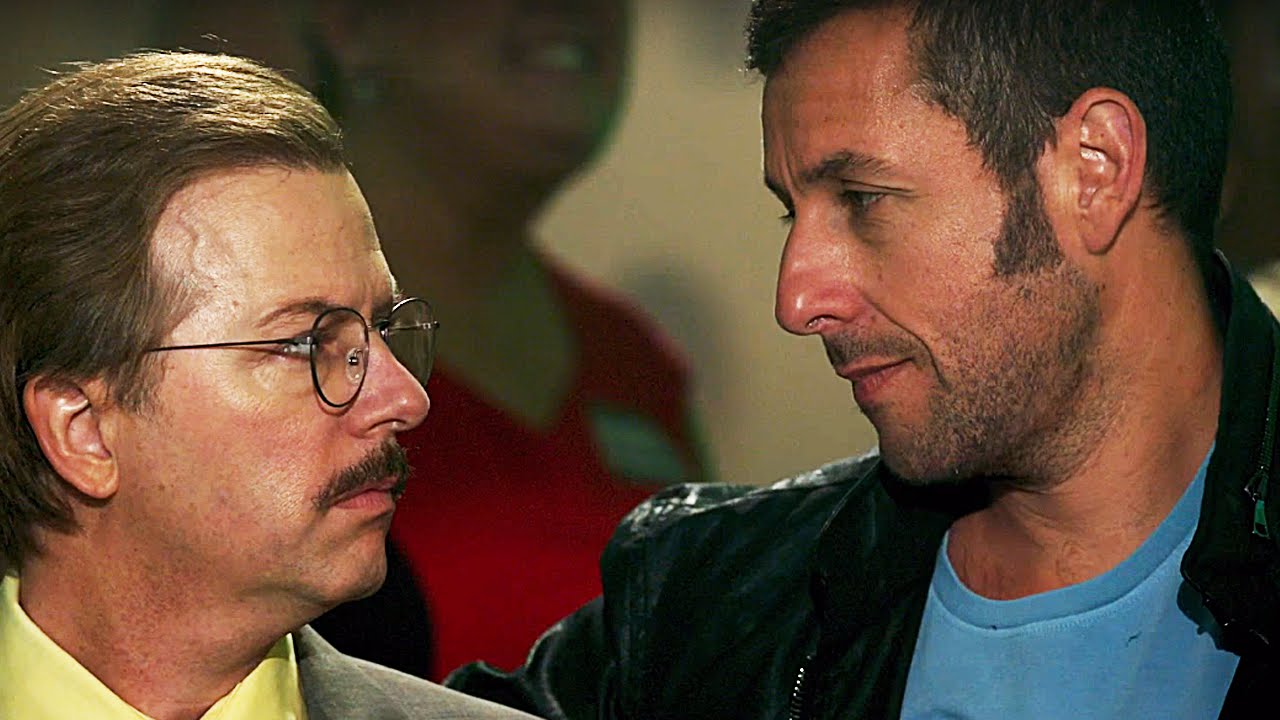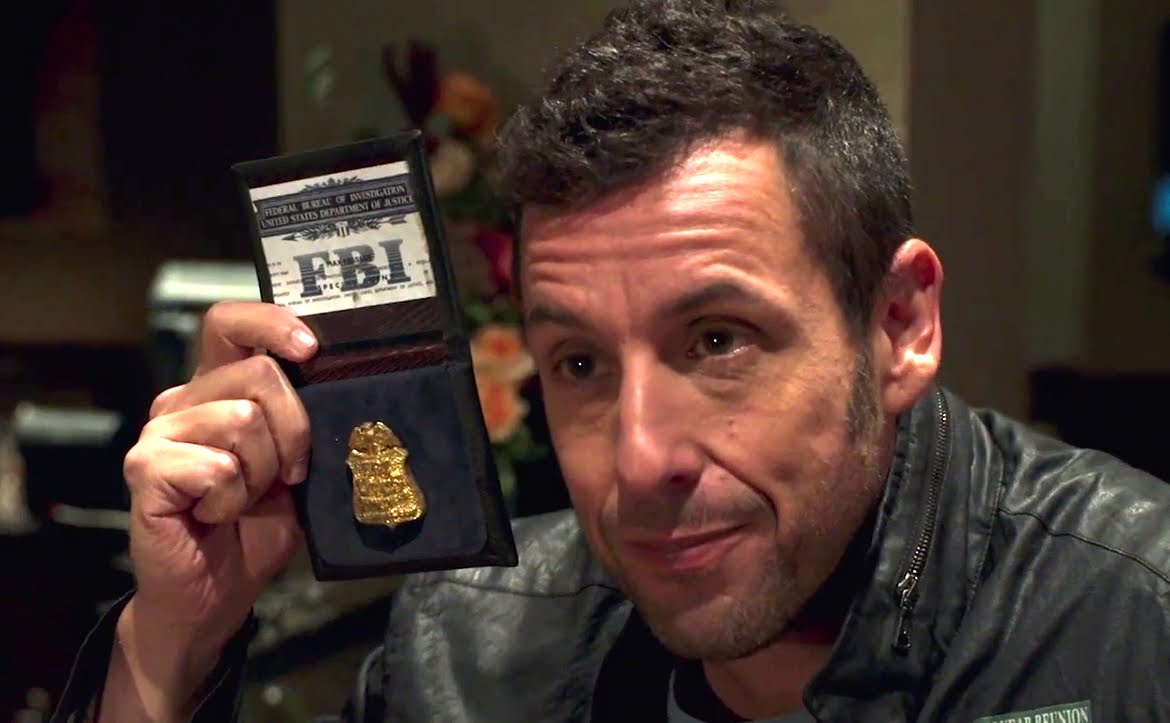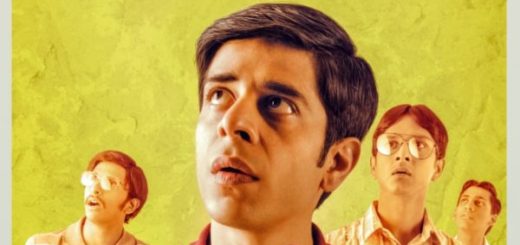THE DO-OVER Review

Director: Steven Brill
Genre: Experimental
Year: 2016
It’s hard to believe that Adam Sandler has already launched the second of four planned Netflix exclusive features barely six months after THE RIDICULOUS 6, but here we are. It should be made immediately clear that THE DO-OVER is far better than THE RIDICULOUS 6, and while I realize, even as I type this, that a more universal appraisal for a film couldn’t exist in this universe, THE DO-OVER manages to baffle me more than even that other Sandstream could manage. Here is a movie that defines niche and genre, one that manages to change its identity on the go, and, much like its bumbling protagonists, fools viewers into thinking it’s something it’s not. It is cinema without boundaries, a fusion of the ethos and pathos of one of Hollywood’s most twisted and oft-misunderstood minds. In short, THE DO-OVER is a postmodern masterpiece.
In a rare and humble move, THE DO-OVER revolves not around Sandler, but rather David Spade of DICKIE ROBERTS: FORMER CHILD STAR fame. Spade is Charlie, a loser stuck with a dead end job, an unfaithful wife, and two abusive stepsons. Fortunately for Charlie, childhood pal Max (Sandler) appears out of the blue and fakes their deaths in a staged boating accident. Using the identities of two recently deceased men, they are able to live off the grid in an existence of endless margarita bars and threeways.

Haha, cool
It sounds like all fun and games, right? Wrong. Forty minutes into the movie, hitmen appear and start trying to kill Charlie and Max. The pair have to abort their vacation and travel back to America in order to find out who wants them, or rather their dead counterparts, murdered. The next hour follows their search for the truth, which uncovers a conspiracy involving multinational corporations, pharmaceutical research, and one of the greatest cover-ups in modern history. That’s right — THE DO-OVER is a thriller to rival PATRIOT GAMES, and it’s part of the same movie with a first act alone that breaks this year’s record for number of dick and masturbation jokes.

That’s right — you’ve been played
If that plot transformation didn’t blow your mind, the trailblazing writing certainly will. Many have accused Sandler in the past of homophobic subtext pervading his films. Seeking to dispel this belief, Sandler puts the queer jokes in the forefront of THE DO-OVER, halting entire scenes at times to deliver minute long blowjob impressions of other men, or in one particular instance, outwitting a captor by convincing him that torture “is gay.” Modern progressive beliefs and widely-accepted cultural norms would tell us that such humor is “in poor taste,” “problematic,” and is “hate speech,” but Sandler knows better. With some help from strong misogynistic sentiment and a smattering of rape jokes, Sandler is able to spin the clock back thirty years to a simpler time, before such thoughts were shamed, and has returned cinema to a time when a man could speak his mind.

Okay, you got me! Maybe I stretched that last point a tad
THE DO-OVER implements several other subversions on what cinema can and cannot be. Sandler and Spade’s characters frequently mention how much they love Bud Light, but are always shown with a Corona in hand. This subtle criticism of the capitalist ideal of brand loyalty demonstrates how it’s the bonds between people, not products, that stand true and strong, much like THE DO-OVER’s integrity in the face of a corrupt industry. Likewise, when both a jealous husband and a previously-fatally-shot character are seen happily relaxing with our heroes later in the film, it demonstrates how our perceptions of art are fleeting, and how one day Sandler will come to be recognized as the genius he is.
The soulless performances from both Spade and Sandler accentuate their frustration with a society that would rather judge than appreciate, and THE DO-OVER can be seen as their manifesto of redemption. Both have been considered dead to the world for years, washed-up has-beens desperate to stay in the limelight, but now they are putting their feet down. Whether it’s Sandler’s trademark dead-inside stare or Spade’s self-loathing, half-hearted cackle, neither demonstrate a modicum of passion in the portrayals of their characters, if only because neither are willing to apologize for their own works any longer. These are two men who have drawn a line in the sand, creating a work so worthy of critique that the very act of doing so becomes meaningless.

I know, I know
THE DO-OVER refers to more than just the premise of the Sandman’s latest caper; it announces the reinvention of his persona, both as an artist and as a man. This is not the peddler of tripe of the like of PIXELS and THE RIDICULOUS 6, nor is this mind behind classics like HAPPY GILMORE and BIG DADDY. No, this is a different person entirely. THE DO-OVER is a rebirth for Adam Sandler on a scale several leagues greater than even PUNCH-DRUNK LOVE was. No matter what you think of this film, it’s safe to say that the third era of Sandler has begun.
Verdict: Recommend



